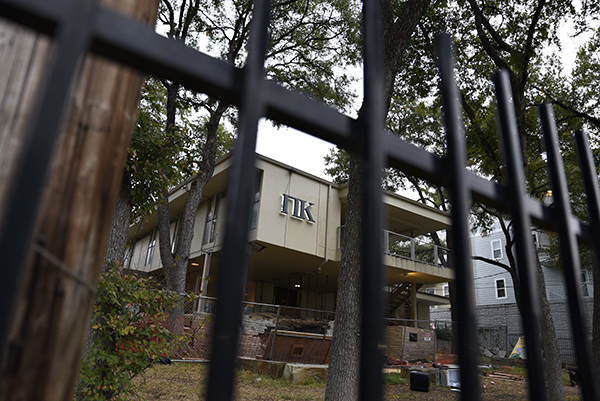UT’s Pi Kappa Phi fraternity chapter hazed pledges by forcing them to eat soup laced with ghost pepper and cat food, according to a recent University investigation.
The Office of the Dean of Students recommended a four-year suspension and a subsequent two-year probation last week for UT’s Pi Kappa Phi chapter for hazing violations. The fraternity still has the option to appeal the Dean of Students’ recommendations.
Fraternity members admitted to hazing during the fall 2018 and spring 2019 new member induction processes, including forcing pledges to stand in ice while being interrogated by active members, according to a Student Conduct and Academic Integrity administrative disposition.
Student Conduct received a report June 12 from Student Emergency Services about a group chat where Pi Kappa Phi’s new member educator and other student leaders discussed hazing fall 2018 pledges, according to the disposition, which was obtained by The Daily Texan through a public information request.
“We are working with the University of Texas at Austin with the reports on the chapter,” said Victor Tran, the assistant executive director of communication for the Pi Kappa Phi national organization. “As the investigation is ongoing, we are not able to comment further.”
Members reported hazing activities such as active members forcing pledges to wear black bags on their heads and listen to “disturbing music” while driving them around campus for up to two hours as part of an induction process, according to the disposition. Pi Kappa Phi did not return a request for comment before publication.
According to the disposition, new members were also placed in a room in the fraternity house called the “Hazement,” a “small closet-type room void of light,” to do 30-minute wall sits and planks and complete a 500-piece puzzle while listening to loud electronic dance music under strobe lights.
Pledges also participated in “Hell Week,” during which pledges had to run relay races between the fraternity’s house and an apartment building while chugging milk laced with substances, including laundry detergent and vinaigrette, according to the disposition.
Other hazing activities included active members requiring pledges to run laps around the house, carry tobacco products and a green pen in University Co-op bags and clean the fraternity house, according to the disposition.
According to the disposition, the University’s Pi Kappa Phi chapter has been suspended for hazing violations twice in the past eight years. In 2011, the chapter entered a two-year mutual resolution agreement with the University after it was found to have subjected pledges to forced physical activity, forced consumption of alcohol and servitude, according to the disposition. The chapter also served a year of probation in September 2016 after Student Conduct found members subjected pledges to forced physical activity.
“Through the terms and conditions of the Mutual Resolution Agreement, the university provided the Pi Kappa Phi with the opportunity to create long-lasting change and prove that its inclusion as part of the Longhorn community could bring value to the campus,” the disposition reads. “Pi Kappa Phi, however, failed to incorporate the Mutual Resolution Agreement’s best practices into its culture.”
After the chapter serves its cancellation term, it can be reinstated as a registered student organization if it completes current sanctions, including presenting future pledges with its history of hazing behavior and disciplinary actions and requiring future pledges to complete a hazing prevention education program.





















